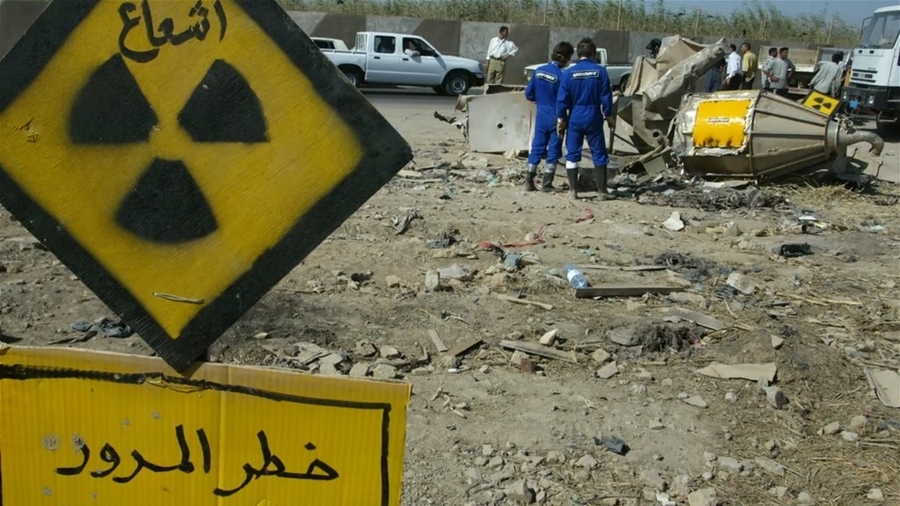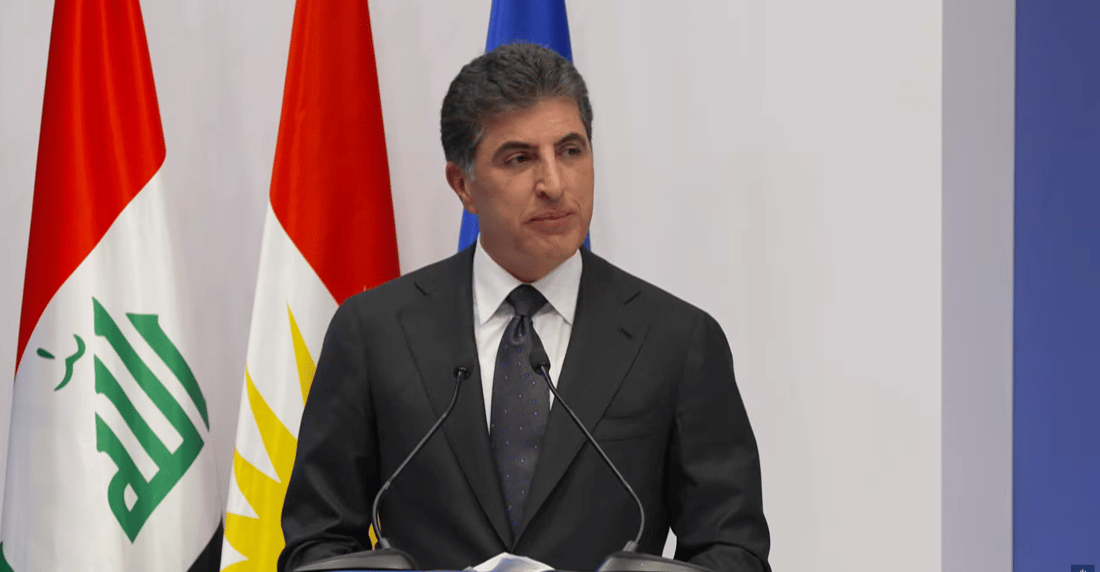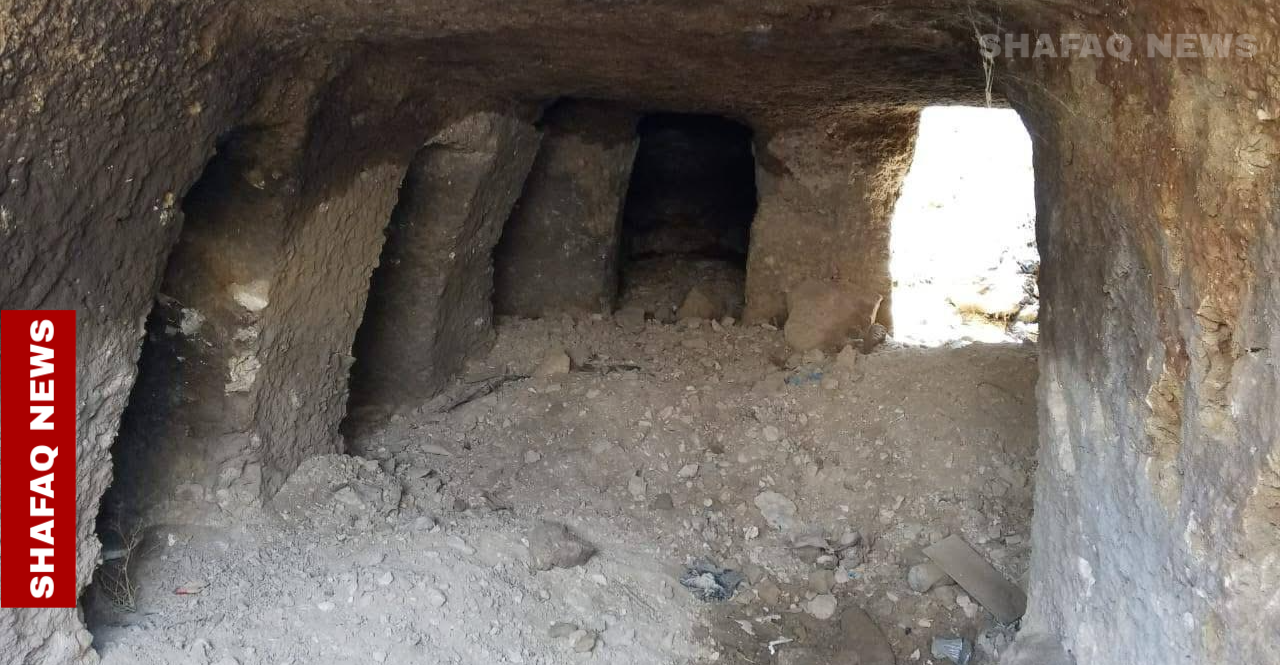Al-Anbar's hidden danger: The battle against radioactive contamination

Shafaq News/ Decades of war, industrial activities, andurban growth have left Al-Anbar grappling with an invisible yet dangerousthreat: radioactive contamination. From depleted uranium munitions to oilfacility damage and unchecked urbanization, the province’s soil, air, and waterbear the scars of past conflicts and development.
Causes of Contamination
Al-Anbar has experienced significant environmentalcontamination due to a combination of military, industrial, and humanactivities. The region’s history of conflict and its role in Iraq’s oil sectorhave resulted in various forms of pollution that pose challenges to publichealth and the ecosystem.
Decades of military operations in Al-Anbar, including heavyartillery, bombing, and napalm use, have caused severe environmental damage,releasing toxins into the soil, air, and water, harming biodiversity and theregion's ecological health.
In addition, depleted uranium munitions in the province havecaused environmental contamination, releasing uranium oxide particles into theair and soil.
The oil facilities destruction during wars has also led tooil spills and fires, releasing harmful pollutants. For instance, oil wellfires during the 2003 invasion of Iraq contributed to significant air and soilpollution.
Moreover, industrial activities, particularly oil storageand distribution, have polluted Al-Anbar's soil and water, with studies nearoil facilities showing high heavy metal concentrations.
Another cause is Rapid urbanization and growingtransportation networks.
This exposure is linked to serious health risks, includingcancer and birth defects, raising concerns about long-term effects on residentsand the environment.
Health and Environment Threats
Al-Anbar has endured exceptional circumstances over the pastdecades, including wars and the use of certain sites for military purposes orhazardous material storage, resulting in radioactive contamination in someareas.
Studies indicate that some areas may contain radiationlevels exceeding internationally permissible limits, raising concerns about theimpact on residents, agriculture, and wildlife.
In 2021, a statement from the Al-Anbar administrationannounced that Iraqi scientists had succeeded in removing and treatingradioactive contamination, adding that “the radioactive scanning teamaffiliated with the Iraqi Commission for Radioactive Decontamination hascompleted its work in the province.”
However, Al-Anbar’s Environment Department Director, QaisNajeh, stated to Shafaq News that the matter of whether radioactivecontamination exists in the province falls under the jurisdiction of the Iraqiauthority responsible for monitoring radiologically contaminated areas. “It isnot within the responsibilities of the Al-Anbar Environment Directorate.”
Regarding chemical contamination, Najeh emphasized that"there are no indications of chemical pollution in the province, accordingto reports issued by the Al-Anbar Environment Directorate," adding that"the province is free from any chemical contamination across all itsregions."
According to environmental expert Saad Kamel, “Thiscontamination is not always visible to the naked eye but can be detectedthrough precise scientific measurements,” stressing the need for acomprehensive survey using modern technologies to accurately identify affectedareas.
He warned that “radioactive contamination has long-termimpacts on public health, including increased rates of cancer and respiratorydiseases,” adding that it also affects the environment by contaminating soiland groundwater, threatening food security and endangering biodiversity.
Environmental expert Saad Kamel told Shafaq News thatAl-Anbar is not free from radioactive contamination, contrary to claims by somesources.
Regarding reports denying the existence of radioactivepollution in the province, he indicated that they may be inaccurate or based onoutdated data.
“The priority now is to confront the reality and work towardsolutions rather than ignoring the issue, as human health and environmentalsafety must remain paramount,” he added.
Call for Action
Regarding potential solutions, expert Kamel pointed out that“tackling radioactive pollution is no easy task and requires cooperationbetween the Iraqi government and specialized international organizations.”
Environmental activist Alaa Al-Dulaimi told Shafaq News that“the first step is to conduct a comprehensive survey using radiation detectionequipment to precisely identify polluted sites and measure contaminationlevels, which will allow for the development of effective scientific plans toaddress these areas.”
He also highlighted the importance of using moderntechnologies to remove pollution, including soil decontamination and the safehandling of radioactive materials to reduce their impact on the surroundingenvironment.
Beyond technical solutions, he stressed the need to raiselocal awareness of the risks of contamination and prevention methods, urging topromote the importance of environmental protection for future generations.
Notably, the Iraqi Ministry of Environment has launched, in2022, a national plan to remove radioactive contamination, focusing onidentifying sources and appropriate handling methods.
Director-General of the Radiation Protection Center SabahAl-Husseini, said to the Iraqi News Agency (INA), “The Ministry is working withthe Ministry of Oil to address contamination, and a comprehensive survey isbeing conducted in various regions.”
The plan started in Basra and extended to Al-Anbar, Dhi Qar,and other provinces, though funding issues and budget delays have hinderedprogress.




